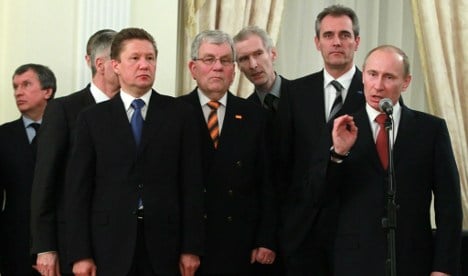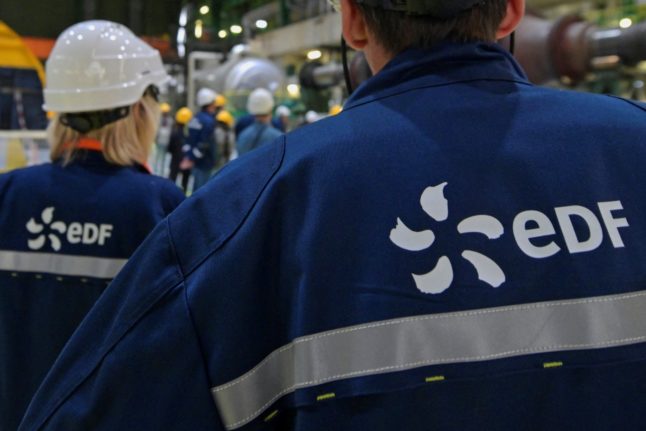Wintershall’s preliminary agreement to acquire a 15 percent stake in South Stream for about €2 billion provides the vital stamp of approval that Russia’s Gazprom gas giant needed from the European Union’s biggest economy.
The Gazprom-led project will be formally joined later this year by the French electricity group EDF and already includes Italy’s ENI as a founding partner.
“This is a tremendously important agreement considering the processes occurring today on the international energy markets,” Russia’s Prime Minister Vladimir Putin said moments after the framework agreement was signed on Monday.
“This is a sign of stability,” the country’s de facto leader added before thanking German Chancellor Angela Merkel for personally backing the project.
The deal delivers a double blow to the US-backed Nabucco pipeline: Germany will provide Gazprom with the required market and is likely to fan European doubts about the viability of their own expensive and risky project.
“This means that the South Stream project has been decided and Gazprom will remain a supplier of gas to Europe for many decades to come,” Gazprom chief Alexei Miller told reporters.
“Gazprom has the markets and most importantly, Gazprom has the volumes” of natural gas required, he said.
The announcement marks a profound reversal of fortune for South Stream.
The $21.5 billion project – its first gas not expected to flow under the Black Sea until year-end 2015 – seemed in serious peril last week when it failed to receive the required blessing from the Black Sea power Turkey.
One Russian official even suggested cancelling the underwater section of the pipeline and transporting liquefied natural gas by ship instead.
But such plans were firmly dismissed by both BASF executives and Gazprom’s Miller at the festive signing ceremony.
“Liquefied natural gas can only be viewed as an additional option,” Miller said.
The deal also represents the latest stage of burgeoning energy ties between Germany and a country that has been criticised by the United States for using pipelines as a strategic weapon.
Wintershall is already a partner in Gazprom’s Nord Stream project that runs directly to Germany under the Baltic Sea.
Both the South and Nord Stream pipelines avoid running through Ukraine – a country with which Russia has had bitter energy disputes – and also bypass Poland to the country’s dismay and frustration.
Other nations have expressed fear that Germany was only pandering to Gazprom’s strategy of dividing Europe by striking gas agreements with specific countries to the detriment of the EU as a whole.
But BASF chief executive Jürgen Hambrecht said his only concern was getting the final agreement decided by the end of the year.
“I am very glad to have the opportunity to sign the documents on this project, this is only the start, this is only a memorandum of understanding,” he said.
“Now we have to work hard and fast to sign a corresponding detailed agreement, but we always work hard.”
Monday’s memorandum of understanding will see Gazprom keep its 50 percent stake in South Stream.
Italy’s ENI held the other half until it agreed to cede 10 percent to the French company EDF in a deal that is due to be formalised later this year.
Both BASF and Russian officials said that Wintershall’s 15 percent stake will come from the shares held by Gazprom’s French and Italian partners.
The precise breakdown is not expected to be announced until later this year.
AFP/ka



 Please whitelist us to continue reading.
Please whitelist us to continue reading.
Member comments